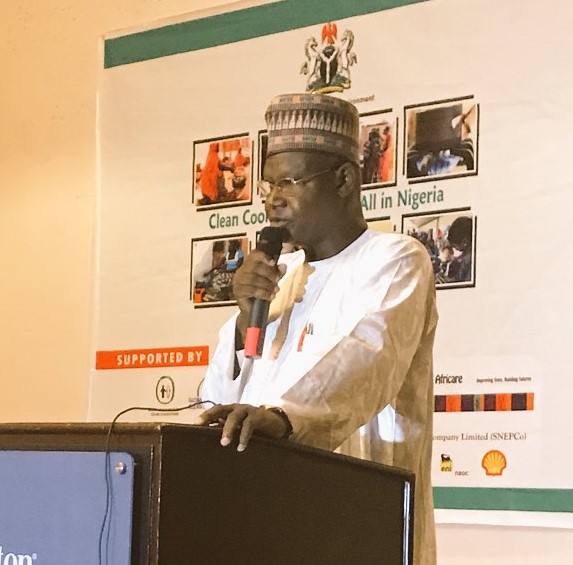Head, Climate Change Unit, Ministry of Water Resources, Mr Mukaila Babarinde, has reiterated the need for stakeholders to strengthen collaboration towards reducing the effects of climate change on the nation’s water resources development.

Babarinde spoke in an interview with News Agency of Nigeria (NAN) on Tuesday, January 23, 2018 in Abuja.
He said that there must be deliberate actions on the part of the Ministries of Environment, Water Resources, Agriculture and Power to address the countless problems associated with climate change.
The Head, Climate Change Unit, contended that much would not be achieved when there are duplicated efforts that were not addressing the myriad of problems in the environment.
“Climate change itself is a global phenomenon and the impact itself is crosscutting, it affects human being, it affects the ecosystem, the health, water sector, no sphere is exempted from its impact.
“As a result of this, efforts must be ensured for an effective collaboration between all sectors to manage the effects of climate change, this is the only way to minimise the impact.”
He said that the sector-specific collaboration involved those concerned in the emission of green house gases, saying they need to be proactive towards reducing the emissions.
On the impact of climate change on water, Babarinde stated that the emission of green house gases is minimal in the water sector.
He, however, stressed the need to carry out activities geared towards adaptation mechanisms and also balance the two extremes of drought and flooding, so as not to endanger the livelihoods of humans.
“Once there is a challenge of water in terms of being too much or being too small, when it’s too little its drought, when it’s too much, it’s flooding, so there must be a balance between the two extremes, and understanding them properly.”
The unit head called for implementation of an Integrated Water Resources Management plan to promote equitable distribution to maximise the use of water in each catchment area in the country.
Babarinde disclosed that the ministry’s action plan in 2018 included the publication of climate change information guide to help planners, geologists, civil engineers and other stakeholders in the river basins to incorporate climate change into design and planning in all water facilities.
He added that the ministry was also working out the production of a National Water Climate Resilience Safety Plan, to spell out safety mechanisms for water infrastructure and address the challenges of existing infrastructure, towards a climate-resilient environment.
He identified inadequate research, poor funding, inadequate dissemination of information to all tiers of government and population explosion as part of challenges in mitigating the effects of climate change.
Babarinde explained further that the challenge of population was an issue to climate change, adding that as it increases, its impact was putting pressure on the environment and its components.
“Now, if you look at Abuja now, the challenge was not like this in the 70’s or 60’s, these herdsmen that are grazing, moving around, they are nomadic; it is the pressure.
“The challenge was not as much then because the space was there in the past.
“But now, everything is getting choked up, the emission from Abuja now is destroying the ecosystem, heavy construction work, they use heavy equipment to destroy the soil.
‘‘People do agricultural practices that are not suitable for each catchment area and that is why a lot of sediments are going into the river,” he said.
By Tosin Kolade
